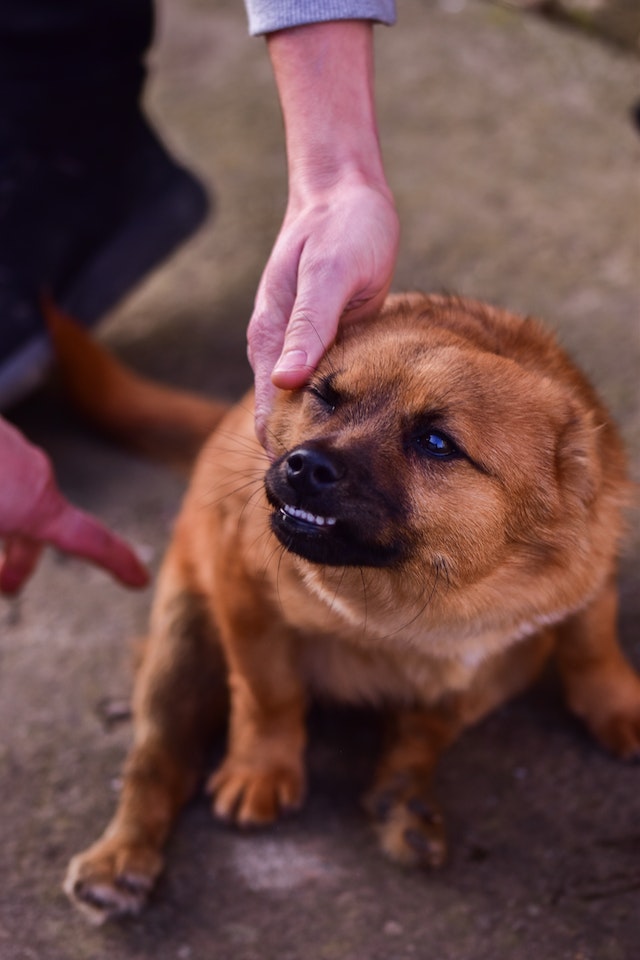















 Back
Back
Common Mistakes Made by Dog Owners (Especially First-Timers!)
Any prospective pet owner knows how cute puppies can be, but they may not know what sort of responsibilities they’re in for. For a strong bond with a happy, well behaved dog, avoid making these all-too-common mistakes.

Writer Animalia Team

We all love our dogs, but being a pet parent is not all cuddles and a game of fetch. It comes with a lot of responsibility. For a strong bond with a happy, well-behaved dog, avoid making these all-too-common mistakes.
Behavior-related mistakes
Underestimating the importance of training
It’s never too early to start training your puppy. An untrained dog is often a confused and unhappy pet with an often-frustrated owner. Before you bring your puppy home, give some thought to ground rules – what will they be allowed to do? What will be off-limits? Be prepared to enforce these rules. After all, your puppy can’t read your mind and intuit your house rules.
Training needs to be consistent from day one. Puppies shouldn’t be allowed to do something for a couple of weeks just because they look cute. Inconsistent rules and regulations will only confuse the training process. If you’ve got a family, bring them into the rule-making process. That way everyone’s on the same page about what is and isn’t allowed.
Ignoring proper socialization
Training creates a set of rules for your puppy while socialization helps them learn to interact with their environment, including people and other pets. Unsocialized dogs can develop fears, phobias, and behavioral issues while well-socialized dogs make for respectful companions. It’s easy to assume that an outgoing puppy will be friendly and sociable as it matures, but owners can’t leave puppies to socialize solo. There’s an optimum socialization period that starts at birth and ends at around three to four months. During this time, plan for lots of positive experiences with your puppy, introducing them to different humans and dogs as well as to new sights, sounds, smells, and textures. Proper socialization is one of the kindest things you can do for your puppy and one of the surest ways to build a strong, lasting bond.
Letting behavioral problems get out of control
Whether it’s training or socialization, consistency is always key when getting to know your puppy. It can be tempting to let behavioral issues slide once in a while, but inconsistency can lead to trouble later on. You won’t find bad behavior cute or easy enough to ignore for very long.
Be careful not to reinforce bad behavior. For example, don’t give your dog a treat as a way of stopping them from barking or acting aggressively. Your dog could learn the wrong lessons and begin to associate bad behavior with rewards. If your puppy’s behavior has gotten out of control, speak to your vet or a professional dog trainer about safe, humane, and effective methods for behavioral modification.

Not brushing up on body language
Becoming an expert in canine body language can help you identify fears, anxieties, and phobias. For example, a wagging tail isn’t always a sign of happiness. It can, in fact, indicate aggression in a dog. Growling isn’t a sign that your dog is protecting you, but more likely a sign of fear. When a dog doesn’t want to be somewhere or do something, they’re not being “stubborn”. That’s a human trait that can’t be applied to dogs. Instead, they’re showing anxiety about their environment. Push a dog to do something that scares them and they might bite you, someone else, or another dog. If anxiety becomes a regular issue, seek professional help.
Health-related mistakes
Avoiding the vet
Vet bills can add up, so it’s sometimes tempting for owners to avoid regular check-ups or even ignore warning signs. Having a close relationship with your vet, however, is vital for maintaining your pet’s health and happiness. Try paying a friendly visit to the vet’s office just to say hello and introduce your dog to the sights, sounds, and smells. This may discourage them from associating the vet with feelings of anxiety. Dogs are sometimes good at hiding signs of illness, so regular vet visits are key.
Incorrect feeding
Making the right choice of puppy food can be overwhelming. Just look at all those options on pet store shelves! Speak to your trainer or vet about what type of diet your dog will require at different life stages. This depends to some extent on their breed and size, but don’t be tempted to overfeed a larger or hungrier dog. 56% of dogs in the United States are obese and obesity can lead to digestive, cardiac, joint, muscle, and bone problems.
Not offering enough exercise
While requirements vary based on breed, age, and health status, all dogs need some exercise to stay happy and healthy. You can determine whether or not you’re providing enough exercise by observing your dog. Do they seem bored or hyperactive?
In addition to walks, try out games like hide and seek and tug of war. These will provide a great bonding opportunity for you both. Remember that some especially active breeds like those in the Herding Group often need a lot of exercise.
Skipping parasite prevention
Heartworm is a potentially fatal parasitic infection and prevention is much simpler (and cheaper) than treatment. Regular anti-worm treatments help avoid digestive issues while topical flea and tick treatments keep your puppy comfortable and in good condition.
Neglecting dental care
Dog breath may seem unavoidable, but it’s often a sign of serious dental issues like tartar buildup or periodontal diseases. These can lead to tooth loss which makes eating difficult or to more serious kidney and heart issues. While vets recommend regular brushing, many dogs won’t tolerate the process. It helps to start early and get dogs accustomed to brushing. Brush when you can and book regular cleaning and descaling sessions with your vet. Chewy toys and special dental treats also help with dental care.
Other common mistakes
Not doing your research
Looking after a dog is a serious commitment that lasts many years. Nevertheless, people still often adopt or purchase dogs based on impulse. Don’t make this mistake! Take care to carefully consider whether you’re ready for a pet before making a decision. Research breeds to find one that suits your lifestyle and only engage with reputable breeders or rescue organizations. Take time to consider the following questions:
- Do you have the necessary time for bonding, training, socialization, and exercising?
- Can you cope with shedding, messes, illnesses, and more?
- Is the dog the right size for your home)?
- Will current pets and family members accept a new puppy?
- Can you afford a dog?
Failing to budget
Keeping a dog safe and healthy is expensive. Draw up your budget ahead of time, taking into account factors like pet insurance, vet care, food, toys, and must-have equipment like collars and leashes. Don’t forget the cost of services you may take advantage of like training, dog walking, or kennels.
Not keeping your dog safe
The American Humane Society estimates that ten million pets are lost or stolen every year. Imagine how devastated you’d be if your dog suddenly disappeared. Take the necessary steps to protect them by getting them microchipped and registered. Always keep your dog leashed and never leave them unattended in public places.





We offer the most comprehensive coverage
out there
Having Animalia is like a top-of-the-line
Rolls-Royce with a swimming
pool in the trunk.



Get your pet insurance quote
Pet type
- Dog
- Cat
What is your pet's name?
Zip code





